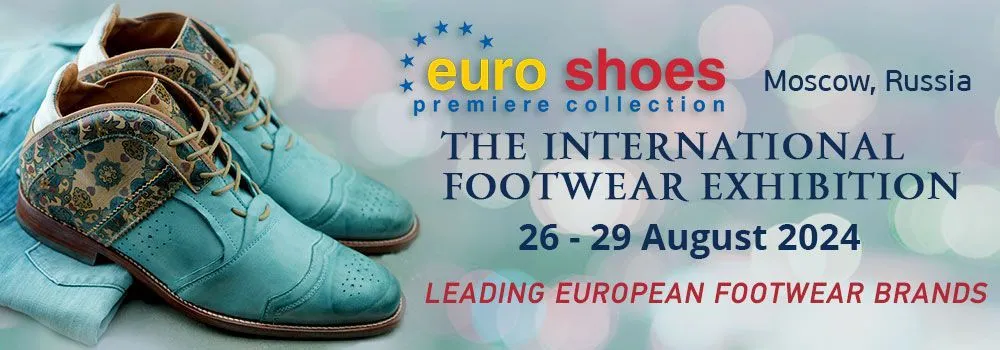
Franchising during a crisis

It is no secret that franchising consists of two main participants: the franchisor and the franchisee. The goals and objectives of these market players during the crisis are absolutely the same - to stay afloat, but the ways to achieve these goals are different.
 Natalia Chinenova -
Natalia Chinenova - @fcgmedia
For a franchisor in a crisis it is important to sell as many goods as possible at prices that are relevant at the time of the crisis. For the franchisee, the most important thing is to preserve the flow of customers, ensure the profitability of the enterprise and not lose out. From these two postulates the main contradictions of franchising are born during the economic turmoil of the market:
1. Franchisee:
- wants to receive goods with deferred payment, on the terms of a commission or for sale
- selects products with the lowest price and only those that, according to experience, will be sold in his region
- expects advertising and marketing support at the expense of the franchisor
2. Franchisor:
- wants to receive money for goods on a prepaid or post-paid basis
- involves the sale of all groups of goods at prices that were set at the time of the crisis
- tries to save on advertising and marketing events
The main areas of franchising in Russia
What to do in this situation? According to the experience of past crises, and there were already at least three of them in the memory of the main Russian players, the market rotates: some franchised networks begin to develop actively, while others, on the contrary, “deflate” and lose ground. At the same time, franchisees do not disappear from the market, they migrate and balance between brands, choosing the optimal working conditions for their business.
It should be noted that in the Russian fashion industry there are two main areas of franchising:
- hidden wholesale - when the franchisee is obliged to complete the design of the premises project, to purchase goods not less than the minimum specified in the franchise agreement and to maintain the appearance of the company enterprise. This franchise option is common in most Russian companies, and almost all high-brand holders use it when they sell franchises to the Russian market
- almost a real franchise system - when the franchisee along with the goods also receives support from the holder of the trademark in the form of: standards, regulations, business processes, settlements and other technologies required for a successful business. There are very few franchises in our market
Go to concessions
According to Reinhard Deppfer, President of EFTEC, in his speech at CPM from 25 on February 2015, most foreign franchisors are ready to make some concessions to their franchisees in the face of the crisis. For example, for each individual franchisee, in each particular city, all together or one of the following benefits can be provided:
- decrease in the required volume of orders to 30% of the amount planned for the contract in monetary terms
- granting the right to choose the necessary models and sizes (in contrast to the mandatory pre-crisis procurement matrix)
- the ability to defer payment on collections from 30 to 60 days
- co-financing the delivery of goods from factories in Germany to warehouses in Russia
- the adoption of the burden of advertising activity to promote the franchisee in the media
- offer additional ex-post discounts in the amount of 10 - 15% on purchases of the collection
Moreover, it is not at all a fact that each company will be ready to provide all these benefits to its franchisees. And even more so, it is not the fact that these privileges will be claimed by Russian franchisees against the background of economic sanctions, the existing inflation and the devaluation of the ruble.
Interesting offer
Nevertheless, the proposals of foreign trademark holders are formulated and voiced, the situation with Russian brands is much more complicated. There are no explicit and open offers on the benefits and benefits of franchising in the media or on the Internet.
What privileges would be of interest to both the franchisor and the franchisee? This question is easier to answer from the perspective of a franchisee, since the franchisor, as a stronger player, must decide for himself which of the events and to what extent he is ready to implement:
1. The most important benefit is the release of money from the franchisee, namely:
- exchange of the remains of the fall-winter collection for spring-summer collection goods
- the possibility of returning purchased but not sold goods, at least within 10%
- the possibility of exchanging some of the unrealized collections of past years, even with a certain discount, for collections of the current season or demanded remnants of past years
In international franchising practice, a rule of return of up to 10% of an unrealized collection is accepted. This is not critical for the franchisor, since it has more opportunities to resell the rest of the collections to large discount centers. Either form full capsules from the goods of past collections and offer these products to franchisees from other regions, or, in the end, sell these leftovers in your own stock stores. In this regard, the offer of the manager of one of the well-known shoe brands to his franchisees is interesting - to exchange balances and form a pool of a new offer for buyers for the current season. It is not clear how this will look from the point of view of accounting, but, if desired and under the control of the franchisor, such an event can be carried out with high probability and effectiveness for the franchisee.
2. An equally important component is the franchisee's ongoing costs of maintaining the business. In this regard, the franchisee is interested in the following "concessions":
- delivery of goods at the expense of the franchisor or “50 to 50”
- production of fashion posters and promotional products of the current season at the expense of the franchisor
- coordination of transfer to another taxation system (in this case, the legal entity of the franchisee will change, which formally will require re-registration of the Commercial Concession Agreement in FIPS).
Against the background of austerity and the desire of each company to "survive", the provision of certain financial benefits for the franchisee seems disadvantageous to the franchisor. However, if we take into account that transport and advertising costs make up no more than 3-7% of the turnover and compare these costs with the loss of even one franchisee buyer, then it is better to make reasonable concessions than to lose market share. Moreover, the closure of the store and the removal of the sign is, in fact, the loss of the consumer audience of the whole city for a long time. Reopening a store in a “closed” city, especially in the current decade, is very difficult.
3. Training, anti-crisis measures and rallying - these factors are also important:
- seminars, trainings or corporate congresses at which franchisees can share their experience and receive support and specialized advice from the franchisor
- crisis management or the departure of narrow-profile specialists to help the franchisee to a specific regional store, etc.
Anti-crisis tools
As a rule, franchisees are private entrepreneurs or small business owners. Most of them chose franchising not so much from the point of view of the economy, but according to their personal feeling: “like - not like”. Small regional stores in the crisis are much more difficult to understand what to do next? Right now it's time to turn the shoulder of the “elder brother” and show that franchisees are not abandoned, that they are important and expensive for each franchisor.
And what is important during a crisis for a franchisor? Of course - the opportunity to expand the network, and, accordingly, increase sales. Not all franchisors are ready to support their franchisees, not all have time to revise the product matrix, not all have approached the crisis in full combat readiness. Franchising is now in the stage of "chatter". Someone is losing the franchisee, someone is leaving the franchisor. It is high time to attract regional businessmen free from the unprofitable franchise into their team and expand the network of stores. The tools of attraction may be the simplest offers, for example:
- the possibility of opening a store not on proprietary equipment (since the franchisee already has a ready-made empty and fully equipped store)
- absence of royalties and lump-sum payment for mandatory registration of the Agreement with FIPS
- decrease or vice versa, increase in the area of the trading enterprise
- free signboard or compensation for the manufacture of a sign at least 30%
- proposal to open stock stores or discount centers, etc.
Crisis is a time of opportunity. The future of the company depends on how the company uses these opportunities. As an example, I want to talk about the positive experience of running and developing a franchising business of the world famous TM HUGO BOSS during the global economic crisis of 2007 - 2010.
As you know, until 2008, HUGO BOSS did not develop franchising and only opened its own stores around the world. The global crisis negatively affected the financial performance of sales and brand activities. As a result of long work (preparation for the introduction of franchising and franchising sales took more than a year), during the 2008 - 2010 year, the brand opened more than 1 000 franchised stores, increasing its network size by more than five times and strengthening its market position.
At the same time, the press repeatedly slipped reports on the development of franchising with the brands Sportmaster, Detsky Mir, KOOKAI, ESPRIT, OVS, River Island and many others who tried to develop franchising business in Russia, but this experience was unsuccessful or unclaimed for various reasons .
In any case, franchising is a good anti-crisis tool for both the franchisor and the franchisee. Only this way of doing business requires careful preparation, development of a technology package and the effective work of the parent business, since franchising is a "cast" from your own retail network. It makes no sense to clutch at the franchise, like a straw, if the retail is “lame”, just as there is no reason to “strangle” the franchisee in his arms, since the franchise is a way to make a profit, not a charity.
For each company in the market there is only its own unique franchise recipe, which is developed in the "secret laboratories" and the bowels of each particular business. And if there are no such “alchemists” in your company, then I recommend that you better seek the help of consultants than get negative experience by learning from your own mistakes: save more time and minimize losses.
The structure of the Russian franchising market
by company origin
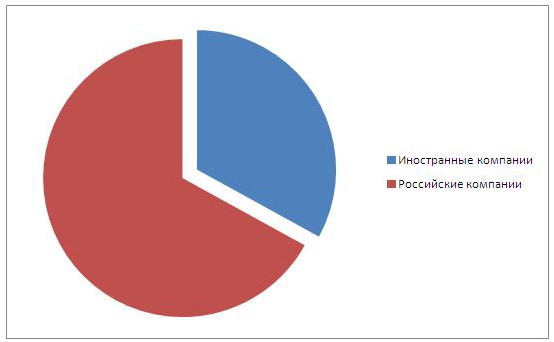
The structure of the Russian franchising market by type of activity
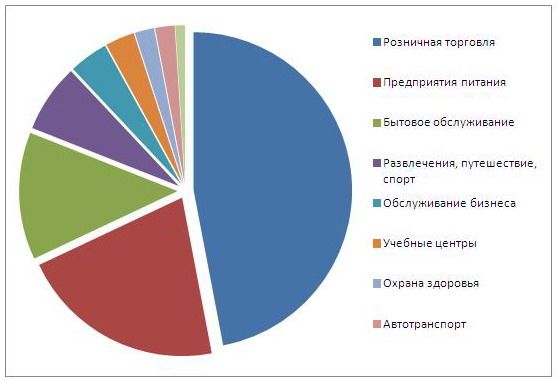
The structure of the European franchising market by type of activity
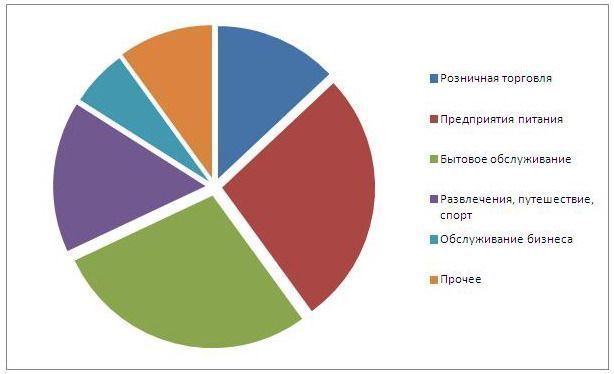
The situation of the franchisee in the crisis is perhaps the most fragile. Experts say that without additional anti-crisis expenses, many franchise holders this year will lose financial stability and curtail their business. Are franchisors ready to sacrifice their profits, take part of the costs for themselves, or increase the costs of helping their franchisees in order to maintain their occupied share in the Russian market?
As a survey among operators shows, the recession in the Russian economy, a sharp increase in the exchange rate and a decrease in the purchasing power of the population are forcing Russian franchisors to change their business strategy in favor of the franchisee.
Thus, the Alba shoe retailer launched a program for returning unsold goods at the end of the season, said Alba Franchising Director Mikhail Chernikov. Also, the retailer began to provide its partners with a factoring payment system that allows you to get a deferred payment for a percentage of the amount payable. The percentage itself is divided in half between the franchisor, the owner of the franchise, and the franchisee, its buyer. According to Chernikov, such measures were taken so that the partners had free funds.
Among other ways to help their partners were mentioned: reducing lump-sum contributions and royalties, transferring payments between the franchisor and franchisee from currency to rubles, refraining from price indexation, reducing the requirements for commercial equipment, and negotiating with landlords on the ground.
The main event of April on franchising! Learn more!
| Please rate the article |
Materials on the topic
What is the mistake of suppliers of children's shoes in working with wholesale companies

How to work with marketplaces to avoid competition between the online assortment and the offline store

Brazilian shoe manufacturers invite buyers from Russia and CIS countries to business meetings in online format

DEOX strengthens its market position
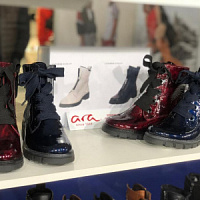
Lillian Roor, ARA Sales Director in Russia: “ARA Shoes strives to be the most high-tech manufacturer of fashionable footwear.
Popular
 Coach turned to Big Data analysis and won the interest of a young audience
American handbag brand Coach has planned the success of its Tabby model among a younger audience, Generation Z, by turning to big data analysis, abandoning traditional and analogue tools, such as human intuition or the ability of any executive to sense “which way the wind will blow,” writes B.O.F.
Coach turned to Big Data analysis and won the interest of a young audience
American handbag brand Coach has planned the success of its Tabby model among a younger audience, Generation Z, by turning to big data analysis, abandoning traditional and analogue tools, such as human intuition or the ability of any executive to sense “which way the wind will blow,” writes B.O.F.
 IDOL updates the concept
The IDOL brand, part of the Melon Fashion Group portfolio, opened the first flagship in an updated concept in the Aviapark shopping center in Moscow.
IDOL updates the concept
The IDOL brand, part of the Melon Fashion Group portfolio, opened the first flagship in an updated concept in the Aviapark shopping center in Moscow.
 Louis Vuitton opens a new factory in Italy
Louis Vuitton has opened its second shoe factory in Italy. After opening the first one in Fiesso d'Artico in Veneto, the LVMH flagship brand has just opened a new production site dedicated to this category of footwear in the industrial zone of Civitano in the Marche region. There is also another brand production facility in Tuscany, where bags and leather accessories are produced, writes fr.fashionnetwork.com.
Louis Vuitton opens a new factory in Italy
Louis Vuitton has opened its second shoe factory in Italy. After opening the first one in Fiesso d'Artico in Veneto, the LVMH flagship brand has just opened a new production site dedicated to this category of footwear in the industrial zone of Civitano in the Marche region. There is also another brand production facility in Tuscany, where bags and leather accessories are produced, writes fr.fashionnetwork.com.
 The Euro Shoes@CAF exhibition will be held in Almaty
From March 11 to 13, the Euro Shoes@CAF (Central Asia Fashion) exhibition will be held in Almaty at the Atakent exhibition complex. The exhibition, which is the largest international event in the fashion industry in Central Asia, will present collections of clothing, shoes and accessories.
The Euro Shoes@CAF exhibition will be held in Almaty
From March 11 to 13, the Euro Shoes@CAF (Central Asia Fashion) exhibition will be held in Almaty at the Atakent exhibition complex. The exhibition, which is the largest international event in the fashion industry in Central Asia, will present collections of clothing, shoes and accessories.
 Euro Shoes will start operating on February 19 in Moscow!
The winter session of the international exhibition of footwear and accessories Euro Shoes premiere collection will be held in Moscow at the Expocenter from February 19 to 22. The organizers promise the presence of all the main participants at the exhibition, as well as new names from Europe, Asia and Russia.
Euro Shoes will start operating on February 19 in Moscow!
The winter session of the international exhibition of footwear and accessories Euro Shoes premiere collection will be held in Moscow at the Expocenter from February 19 to 22. The organizers promise the presence of all the main participants at the exhibition, as well as new names from Europe, Asia and Russia.
 American buyers couldn't buy Birkin bags and sued Hermès
French fashion house Hermès is facing a lawsuit in California from two customers who were unable to purchase exclusive Birkin bags. The fashion house is accused of unfair commercial practices.
American buyers couldn't buy Birkin bags and sued Hermès
French fashion house Hermès is facing a lawsuit in California from two customers who were unable to purchase exclusive Birkin bags. The fashion house is accused of unfair commercial practices.
 Why Rendez-Vous and Yandex Lavka released a “bread bag”
Shoe retailer Rendez-Vous announced the launch of a spring collaboration with Yandex Lavka and released a roll that resembles the shape of a woman’s handbag. This “Bread Bag” is presented in the Yandex.Lavka application at a price of 249 rubles. On the product packaging there is a promotional code for 1000 rubles, which can be spent in the Rendez-Vous network.
Why Rendez-Vous and Yandex Lavka released a “bread bag”
Shoe retailer Rendez-Vous announced the launch of a spring collaboration with Yandex Lavka and released a roll that resembles the shape of a woman’s handbag. This “Bread Bag” is presented in the Yandex.Lavka application at a price of 249 rubles. On the product packaging there is a promotional code for 1000 rubles, which can be spent in the Rendez-Vous network.
 Camper has released innovative sneakers - designers
Spanish brand Camper's new Roku sneaker features six interchangeable components to create up to 64 different looks and color combinations. Roku means "six" in Japanese.
Camper has released innovative sneakers - designers
Spanish brand Camper's new Roku sneaker features six interchangeable components to create up to 64 different looks and color combinations. Roku means "six" in Japanese.
 Christian Louboutin presented a collection in a cowboy style
At the Loubi Show in Paris, the French luxury brand Christian Louboutin presented its fall 2024 collection, following the trend - in the style of the Wild West. It included cowboy boots and rhinestone loafers.
Christian Louboutin presented a collection in a cowboy style
At the Loubi Show in Paris, the French luxury brand Christian Louboutin presented its fall 2024 collection, following the trend - in the style of the Wild West. It included cowboy boots and rhinestone loafers.
 Fashion Week takes place in Moscow
Fashion Week takes place in the Russian capital. Events include fashion shows, markets where you can purchase clothes, bags and accessories, and a B2B Showroom for fashion industry professionals.
Fashion Week takes place in Moscow
Fashion Week takes place in the Russian capital. Events include fashion shows, markets where you can purchase clothes, bags and accessories, and a B2B Showroom for fashion industry professionals.
 Turkish brand Vaneda on Euro Shoes
Street style, sport, outdoor, military – the main style directions of footwear of the company from Turkey
Turkish brand Vaneda on Euro Shoes
Street style, sport, outdoor, military – the main style directions of footwear of the company from Turkey
 Kari accuses Zenden of unfair competition and is suing the FAS
The largest Russian shoe chain, Kari, appealed to the Moscow Arbitration Court to declare the actions of the Federal Antimonopoly Service (FAS) illegal, writes RBC.
Kari accuses Zenden of unfair competition and is suing the FAS
The largest Russian shoe chain, Kari, appealed to the Moscow Arbitration Court to declare the actions of the Federal Antimonopoly Service (FAS) illegal, writes RBC.
 Fashion trends Fall-Winter 2023/24 for commercial footwear purchases
Permanent contributor to Shoes Report. Elena Vinogradova, an expert in sales and purchases in the fashion business, prepared an overview of the trends for the autumn-winter 2023/24 season especially for us.
Fashion trends Fall-Winter 2023/24 for commercial footwear purchases
Permanent contributor to Shoes Report. Elena Vinogradova, an expert in sales and purchases in the fashion business, prepared an overview of the trends for the autumn-winter 2023/24 season especially for us.
 MSCHF and Crocs launch "Big Yellow Boots"
Creator of the Big Red Boots, Brooklyn brand MSCHF has teamed up with American plastic clog and sandal brand Crocs for another oversized shoe. The new Big Yellow Boots will go on sale on August 9th.
MSCHF and Crocs launch "Big Yellow Boots"
Creator of the Big Red Boots, Brooklyn brand MSCHF has teamed up with American plastic clog and sandal brand Crocs for another oversized shoe. The new Big Yellow Boots will go on sale on August 9th.
 Five rules of professional lighting for a shoe store - something that is relevant in any season
When developing a lighting concept for shoe retailers, it is important to take into account not only the history of the brand, the architectural content of the premises, the target audience of the stores, but also the seasonality of the goods. With the onset of the cold season, client preferences change: bright weightless shoes are replaced by more massive models in discreet dark colors. Despite significant differences in summer and winter collections, the overall philosophy of the brand, its recognition should remain unchanged at any time of the year. Tatyana Ryzhova, an SR lighting expert in fashion retail, has identified five basic rules for a competent lighting concept for a shoe store for readers of the magazine, which will help to present winter assortment to customers in a winning way.
Five rules of professional lighting for a shoe store - something that is relevant in any season
When developing a lighting concept for shoe retailers, it is important to take into account not only the history of the brand, the architectural content of the premises, the target audience of the stores, but also the seasonality of the goods. With the onset of the cold season, client preferences change: bright weightless shoes are replaced by more massive models in discreet dark colors. Despite significant differences in summer and winter collections, the overall philosophy of the brand, its recognition should remain unchanged at any time of the year. Tatyana Ryzhova, an SR lighting expert in fashion retail, has identified five basic rules for a competent lighting concept for a shoe store for readers of the magazine, which will help to present winter assortment to customers in a winning way.
 Bertsy: what to look for when choosing a model
Bertsy and tactical boots are becoming more and more relevant footwear, and not only because of the start of the hunting season. In Russia, there are several dozen enterprises producing this type of footwear. Oleg Tereshin, Deputy Chief Technologist of ZENDEN, told Shoes Report about the differences and features of ankle boots and what you should pay attention to when buying them in specialized retail and online.
Bertsy: what to look for when choosing a model
Bertsy and tactical boots are becoming more and more relevant footwear, and not only because of the start of the hunting season. In Russia, there are several dozen enterprises producing this type of footwear. Oleg Tereshin, Deputy Chief Technologist of ZENDEN, told Shoes Report about the differences and features of ankle boots and what you should pay attention to when buying them in specialized retail and online.
 I doubt and object: how to find an approach to difficult clients?
How good and serene would be the work of a salesperson if the customers were calm, cheerful, always knew exactly what they wanted, and bought, bought, bought! It is a pity that this is possible only in dreams. Therefore, we will not dream, but we will act. Together with Maria Gerasimenko, a permanent author of SR, we understand the doubts and objections of buyers and build a strategy for working with them. Our expert pays special attention to the two main objections of buyers, on which 82% of sales are lost.
I doubt and object: how to find an approach to difficult clients?
How good and serene would be the work of a salesperson if the customers were calm, cheerful, always knew exactly what they wanted, and bought, bought, bought! It is a pity that this is possible only in dreams. Therefore, we will not dream, but we will act. Together with Maria Gerasimenko, a permanent author of SR, we understand the doubts and objections of buyers and build a strategy for working with them. Our expert pays special attention to the two main objections of buyers, on which 82% of sales are lost.
 EURO SHOES presents an updated section of the GLOBAL SHOES exhibition with collections of shoe and bag brands from Asian countries
EURO SHOES premiere collection is expanding. Along with the traditional pool of leading European footwear brands from Germany, Spain, Italy and Turkey, several dozen footwear and bag brands from the Middle Kingdom will be presented in the GLOBAL SHOES section at the Moscow Expocentre from August 29 to September 1.
EURO SHOES presents an updated section of the GLOBAL SHOES exhibition with collections of shoe and bag brands from Asian countries
EURO SHOES premiere collection is expanding. Along with the traditional pool of leading European footwear brands from Germany, Spain, Italy and Turkey, several dozen footwear and bag brands from the Middle Kingdom will be presented in the GLOBAL SHOES section at the Moscow Expocentre from August 29 to September 1.
 Two prominent Russian fashion designers Vyacheslav Zaitsev and Valentin Yudashkin passed away
One after another, two days apart, Vyacheslav Zaitsev and Valentin Yudashkin, outstanding fashion designers, whose work for the whole world was a kind of hallmark of fashionable Russia, left this world.
Two prominent Russian fashion designers Vyacheslav Zaitsev and Valentin Yudashkin passed away
One after another, two days apart, Vyacheslav Zaitsev and Valentin Yudashkin, outstanding fashion designers, whose work for the whole world was a kind of hallmark of fashionable Russia, left this world.
 World Footwear Yearbook: Global footwear production reaches 23,9 billion pairs and is back to pre-pandemic levels
The Portuguese association of shoe manufacturers APICCAPS published the 13th edition of the international statistical bulletin World Footwear Yearbook for 2023, according to which in 2022 the production and export of shoes worldwide increased by 7,6% and 9%, respectively, and the world production of shoes reached 23,9 billion couples and returned to pre-pandemic levels.
World Footwear Yearbook: Global footwear production reaches 23,9 billion pairs and is back to pre-pandemic levels
The Portuguese association of shoe manufacturers APICCAPS published the 13th edition of the international statistical bulletin World Footwear Yearbook for 2023, according to which in 2022 the production and export of shoes worldwide increased by 7,6% and 9%, respectively, and the world production of shoes reached 23,9 billion couples and returned to pre-pandemic levels.
 Rostov footwear brand Novak presented a collection of sneakers and sneakers
In the spring-summer 2023 season, the Rostov-on-Don shoe brand Novak presented a cute collection of sneakers and sneakers for every day. The upper of the shoe is made of genuine leather, suede, nubuck, the sole is made of light EVA.
Rostov footwear brand Novak presented a collection of sneakers and sneakers
In the spring-summer 2023 season, the Rostov-on-Don shoe brand Novak presented a cute collection of sneakers and sneakers for every day. The upper of the shoe is made of genuine leather, suede, nubuck, the sole is made of light EVA.
 How to create selling visual content for online based on the identified unique selling proposition?
What is a USP (unique selling proposition) and what is it for? Why is the USP creation service in great demand among fashion retailers today? How to create a working USP? Answers questions and provides step-by-step guidance on how to define your unique selling proposition and work with it to increase online sales, Tatyana Vasilyeva, an SR expert in the promotion and development of fashion brands.
How to create selling visual content for online based on the identified unique selling proposition?
What is a USP (unique selling proposition) and what is it for? Why is the USP creation service in great demand among fashion retailers today? How to create a working USP? Answers questions and provides step-by-step guidance on how to define your unique selling proposition and work with it to increase online sales, Tatyana Vasilyeva, an SR expert in the promotion and development of fashion brands.
 Shoe educational program: what shoe soles are made of
“What is the difference between TEP and EVA? What does tunit promise me? Is PVC glue? What is the sole of these shoes made of? ”- the modern buyer wants to know everything. In order not to smash his face in front of him and be able to explain whether such a sole suits him in soles, carefully read this article. In it, process engineer Igor Okorokov tells what materials the soles of shoes are made of and what makes each of them so good.
Shoe educational program: what shoe soles are made of
“What is the difference between TEP and EVA? What does tunit promise me? Is PVC glue? What is the sole of these shoes made of? ”- the modern buyer wants to know everything. In order not to smash his face in front of him and be able to explain whether such a sole suits him in soles, carefully read this article. In it, process engineer Igor Okorokov tells what materials the soles of shoes are made of and what makes each of them so good.
 How to set prices that will earn
Some businessmen still confuse the concept of margin with the concept of trade margins and set prices for their goods, guided solely by the example of competitors. No wonder they go broke! Analyst at the Academy of Retail Technologies Maxim Gorshkov gives several tips and formulas with which you can set not only ruinous, but also profitable prices.
How to set prices that will earn
Some businessmen still confuse the concept of margin with the concept of trade margins and set prices for their goods, guided solely by the example of competitors. No wonder they go broke! Analyst at the Academy of Retail Technologies Maxim Gorshkov gives several tips and formulas with which you can set not only ruinous, but also profitable prices.
 Sales of shoes and accessories: effective techniques for business rhetoric
Which speech modules are effective in communicating with potential and current customers of shoe stores, and which are not, Anna Bocharova, a business consultant, knows.
Sales of shoes and accessories: effective techniques for business rhetoric
Which speech modules are effective in communicating with potential and current customers of shoe stores, and which are not, Anna Bocharova, a business consultant, knows.
 We form the salary of sellers: expert advice
“How do you charge your consultants for personal or general sales?” Is one of the most popular questions causing a lot of controversy and gossip on the online forums of retail business owners. Indeed, how to properly form the earnings of sellers? But what about bonuses, where to get a sales plan from, do employees allow them to buy goods at discounted stores? In search of truth, the Shoes Report turned to a dozen shoe retailers, but no company wanted to disclose its motivation system - the process of its development was too complicated and individual. Then we asked four business consultants, and finally became convinced that the topic of seller motivation is very complex, because even our experts could not come to a common opinion.
We form the salary of sellers: expert advice
“How do you charge your consultants for personal or general sales?” Is one of the most popular questions causing a lot of controversy and gossip on the online forums of retail business owners. Indeed, how to properly form the earnings of sellers? But what about bonuses, where to get a sales plan from, do employees allow them to buy goods at discounted stores? In search of truth, the Shoes Report turned to a dozen shoe retailers, but no company wanted to disclose its motivation system - the process of its development was too complicated and individual. Then we asked four business consultants, and finally became convinced that the topic of seller motivation is very complex, because even our experts could not come to a common opinion.
 The whole truth about Bayer. Who is he and how to become one?
Bayer is no longer a new, but still a popular and sought-after profession. It’s fashionable to be a buyer. Buyers are at the origins of the emergence and development of trends. If the designer offers his vision of fashion in the season, then the buyer selects the most interesting commercial ideas. It is on buyers that the policy of sales of stores and what, in the end, the buyer will wear depends on. This profession is surrounded by a magical fleur, often associated with a lack of understanding of what exactly is the work of a buyer.
The whole truth about Bayer. Who is he and how to become one?
Bayer is no longer a new, but still a popular and sought-after profession. It’s fashionable to be a buyer. Buyers are at the origins of the emergence and development of trends. If the designer offers his vision of fashion in the season, then the buyer selects the most interesting commercial ideas. It is on buyers that the policy of sales of stores and what, in the end, the buyer will wear depends on. This profession is surrounded by a magical fleur, often associated with a lack of understanding of what exactly is the work of a buyer.
 Technology Selling Issues
There is nothing worse than meeting the buyer with the words “Hello, can I help you with something?”, Because the seller works in the store just to help. Criticizing this well-established pattern of communication with the buyer, Andrei Chirkarev, business coach for effective sales and the founder of the New Economy project, shares the technology of truly selling issues with readers of Shoes Report.
Technology Selling Issues
There is nothing worse than meeting the buyer with the words “Hello, can I help you with something?”, Because the seller works in the store just to help. Criticizing this well-established pattern of communication with the buyer, Andrei Chirkarev, business coach for effective sales and the founder of the New Economy project, shares the technology of truly selling issues with readers of Shoes Report.
 Fur, and not only: types of lining
In the production of winter footwear, various materials are used that are designed to retain heat and meet the requirements of consumers: natural sheepleather, artificial fur, artificial fur from natural wool and others. All types of lining fur have their own advantages and disadvantages. Let's consider the properties of each of them.
Fur, and not only: types of lining
In the production of winter footwear, various materials are used that are designed to retain heat and meet the requirements of consumers: natural sheepleather, artificial fur, artificial fur from natural wool and others. All types of lining fur have their own advantages and disadvantages. Let's consider the properties of each of them.
 Retail Arithmetic
Before you begin to solve specific problems, you need to find out how accurately all the leaders of your company understand the basic terminology of retail.
Retail Arithmetic
Before you begin to solve specific problems, you need to find out how accurately all the leaders of your company understand the basic terminology of retail.
 How to fire a worker without tears, scandal and trial
Sooner or later, any manager is faced with the need to part with an employee. Properly and on time the dismissal procedure will save the company money, and the boss himself - nerves and time. But why sometimes, knowing that a break in relations is inevitable, we put off the decision for months?
How to fire a worker without tears, scandal and trial
Sooner or later, any manager is faced with the need to part with an employee. Properly and on time the dismissal procedure will save the company money, and the boss himself - nerves and time. But why sometimes, knowing that a break in relations is inevitable, we put off the decision for months?


